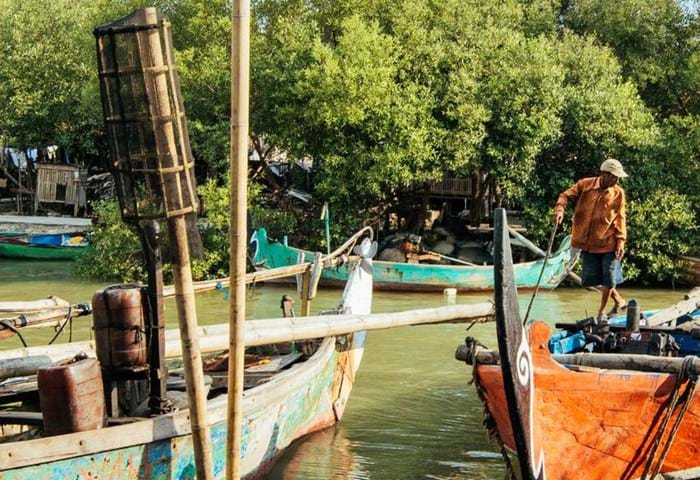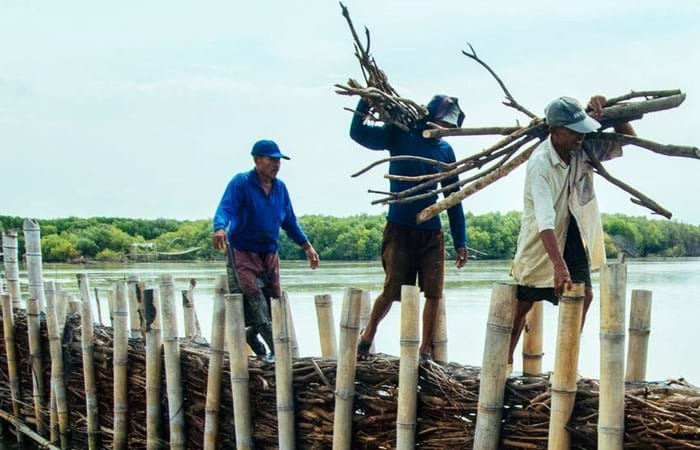Boskalis, as one of the partners in the EcoShape consortium, has embarked on a five-year Building with Nature project to halt coastal erosion in Central Java. Through a unique integration of mangrove restoration, small-scale engineering and sustainable land use the project is expected to turn the tide.
Challenge
With some 70,000 residents in the Demak district in Indonesia, urgent action was needed as the coastline has been retreating at an alarming rate, with the sea already having taken more than three kilometers of land in some places. Mangrove forests that can help dampen waves and stabilize sediment have been chopped down for aquaculture development. There is also significant subsidence as a result of the extraction of fresh water, making the impact of rising sea levels even worse.
Solution
Inspired by how the Netherlands used to reclaim land centuries ago by constructing permeable dams made from willows a similar approach is used in Java. Villagers hammer bamboo poles at least two meters into the seabed and use bundles of brushwood from the shore, binding them together to form dams of about 100 meters long. The dams dampen the waves and take the energy out of the water, while the sediment can still filter through and accumulate and settle behind the dams. In just one year, the level of the bed can rise by up to 50 centimeters.
However, it is not enough to provide a technical solution in Demak; there are many ecological and socio-economic issues to be addressed through the program. With the help of Wetlands International and Blue Forests as well as local and national government agencies Coastal Field Schools have been set up to train villagers so that they can identify and develop successful aquaculture practices and care for the mangroves they depend on for coastal safety and water purification.
Looking at the equator, a similar approach could be taken in countries with comparable vulnerable coastlines such as Vietnam, the Philippines, Malaysia, Bangladesh, India, as well as countries in Africa and Central America. It is a low-tech solution but requires high-tech knowledge and expertise. In many locations it is not ecologically and economically feasible to implement hard infrastructure solutions, such as dams or dikes. Instead, this approach is cost-effective and brings multiple benefits to various stakeholders by restoring ecosystem services along muddy coasts across the tropics.
Social engineering consistent with Boskalis tradition
We want to approach the social impact
of our projects in a decent and responsible way,
taking into account the international rules

